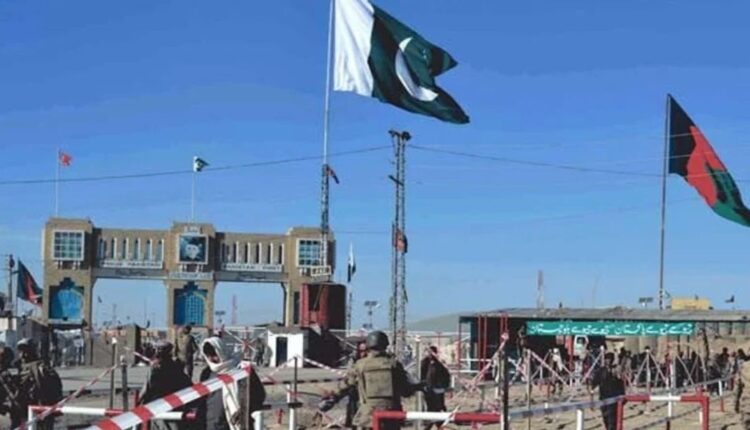
Pakistan–Afghanistan Border Closure Nears End; Reopening Expected Soon
Officials from both countries agree to reopen the border, say sources
ISLAMABAD: The Pakistan–Afghanistan border is expected to reopen within the next 24 to 48 hours, official sources told Geo News on Monday, following a ceasefire agreement between the two neighbouring countries.
Pakistan had closed the Torkham and Chaman crossings on October 12 after the Afghan Taliban, aided by allied militant groups, carried out multiple attacks on Pakistan Army posts along the frontier.
According to diplomatic and security sources, officials from both sides have reached an understanding to restore cross-border movement and trade once the situation remains calm and no further incident occurs.
The border clashes erupted on the night between October 11 and 12, when the Afghan Taliban and affiliated militants launched unprovoked assaults on Pakistani border outposts. In response, Pakistan’s security forces retaliated firmly.
The Inter-Services Public Relations (ISPR) reported that more than 200 Taliban and militant fighters were killed, while 23 Pakistani soldiers embraced martyrdom defending the nation’s borders.
Pakistan also conducted “precision strikes” deep inside Afghanistan, targeting terrorists in Kandahar province and Kabul. A temporary 48-hour ceasefire was announced on October 15 at Afghanistan’s request.
The temporary ceasefire was extended for another 48 hours on October 17 as delegations from the two countries headed to Doha, Qatar, for further negotiations.
Pakistan and Afghanistan agreed to an immediate ceasefire during the Qatar-mediated talks on Sunday.
Defence Minister Khawaja Muhammad Asif announced the deal for a ceasefire, with both sides scheduled to meet again on October 25 in Istanbul, Turkiye, to discuss “detailed matters”.
Taliban spokesperson Zabihullah Mujahid also confirmed the development, saying that the parties agreed on a complete and meaningful ceasefire.
The Myth of Afghanistan: The So-Called Graveyard of Empires
During an interview with Al-Jazeera Arabic, Asif said that the Afghan defence minister acknowledged that terrorism was the key reason behind the tensions between the two countries.
The primary objective of the ceasefire is to eliminate terrorism, he said, adding that both countries concluded that immediate elimination of terrorism was essential.
Asif maintained that terrorism had been affecting the border areas of Pakistan and Afghanistan for years.
The defence minister stated that the two neighbouring countries, after the ceasefire, will make “serious efforts to curb terrorism”.
Failure to do so could pose serious threats to regional peace, he added.
Asif expressed hope that peace will return to the region after the ceasefire and relations will normalise between Pakistan and Afghanistan.
The resulting normalisation will also lead to the resumption of trade and transit and Afghanistan will be able to use Pakistani ports, he said.
Pakistan, Afghanistan seal Ceasefire deal after weeks of border tension
Meanwhile, residents on the frontier are hoping the ceasefire deal will end the clashes and revive crucial cross-border trade.
While the crossings remain closed, life has regained a semblance of normality, with bakers kneading bread, fruit and vegetable sellers wheeling out their carts, and customers frequenting shops.
“People can breathe and feel relieved. (But) before that, gunfire damaged a few houses in our village,” said Sadiq Shah, 56, a shopkeeper from Baizai on the Pakistani side.
The ceasefire agreement has brought relief to many along the border.
“It’s incredible: both sides are Muslim, (ethnic) Pashtuns, so why fight?” said Shah.
“Previously, trade with Afghanistan went through here, and now we’re shooting at each other. What country does that?”
More than 1,500 trucks, trailers and containers carrying cement, medicines, rice and other basic goods are waiting in Torkham, according to a senior Pakistani customs official in nearby Peshawar.
Abdul Rahman Habib, spokesman for the Taliban’s economy ministry, said fruit and vegetables were rotting as they awaited export to Pakistan.
“Businessmen are losing money,” he said, without giving an estimate of the damages.
Habib warned that if this situation persisted, “it could increase prices and unemployment, and destabilise markets”.



Comments are closed, but trackbacks and pingbacks are open.